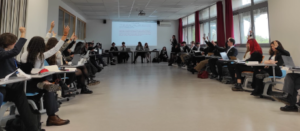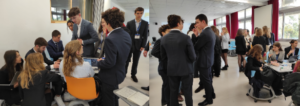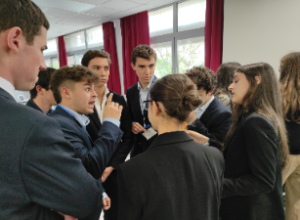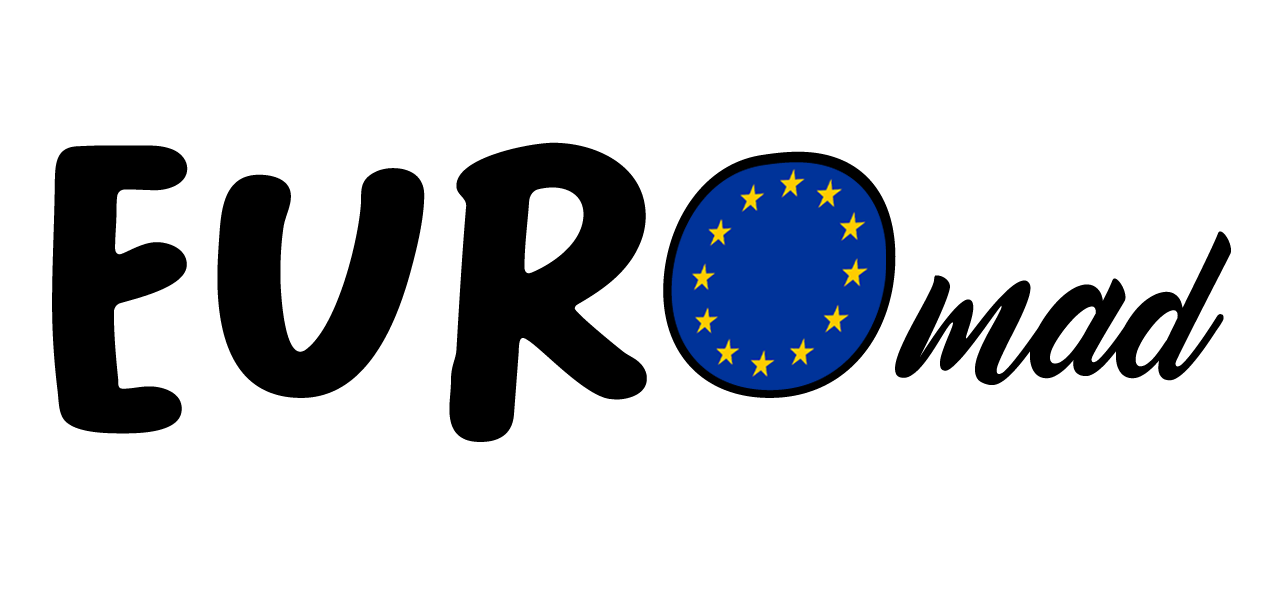“You have no obligation to stay in this organization” Iceland to Luxembourg
A day of agitation and tension in the commission of the OSCE.
The debate on the second day starts strong, everyone participates, and the reactions from a delegate to another are quick. Even people who did not participate yesterday dare to participate today. The votes are very even and no opinion is extremely different from what it was yesterday.
This model of the European institutions is a proof that today’s youth is aware of what is happening, as they care about issues such as the impact of data retention on the environment (delegate from Switzerland) and the education of future generations. The only country that opposes “empowering a new generation of citizens in research and innovation” is the coalition of Belarus, Russia, Kazakhstan, and Turkey because it would cause a bigger threat of cyberwarfare: “better safe than sorry”. 
The other delegates jump into the fight and go against Belarus saying that citizens have the right to have this education and that it is a way to learn to defend themselves: Belgium : “it seems that you’re promoting ignorance”, Mongolia: “you should really think about what you’re saying”, Switzerland: “the countries that are presenting this amendment have a lot of corruption in their government, they are being hypocritical”, etc.
Indeed, the debates were interesting, rapid and sometimes even controversial. There have been moments of tension, but also moments of peaceful agreement between the majority of the countries.
The discussions were abruptly destabilized by the sudden appearance of a breaking news announcing terrorist attacks in several African countries and a cyberattack on the Central European bank, among other famous institutions. After announcing them, the commissioners gave the delegates 15 minutes to find solutions to the problem together.
The debate is oscillating between whether to close the borders of Southern Europe – Italy, Spain, Greece with France, or help the waves of immigrants who will arrive after the attacks. After the informal debate, NATO countries takes the reins and invent an article in which they indicate that the OSCE will help Africa in this time of needs, with interventions and a share of our ressources against terrorism.
 Some countries like Luxembourg did not agree with this article as they did not want to help those affected, but after Iceland’s participation, the other countries came to accept it. Indeed, other delegates wanted to expel Malian foreigners from the entire OSCE and recognize the Malian population as also responsible for terrorist acts due to the protection given by the population to those organisations, but the rest of the countries prevented this article from being accepted.
Some countries like Luxembourg did not agree with this article as they did not want to help those affected, but after Iceland’s participation, the other countries came to accept it. Indeed, other delegates wanted to expel Malian foreigners from the entire OSCE and recognize the Malian population as also responsible for terrorist acts due to the protection given by the population to those organisations, but the rest of the countries prevented this article from being accepted.
Finally, Switzerland was the only country that saw problems where the others did not give importance and presented an amendment that indicated that considering the latest news on the cyberattack towards the European Bank, ties with the bank should be cut immediately and information should be blocked in order to prevent further consequences for European countries, if immediate action for protection is not held. Unfortunately for this delegate, this amendment did not pass, since many countries said they depended too much on that bank. Other amendments were made, but the lack of time forced us to continue with the text proposal. In general, the delegates were satisfied with the development of the debate.
Martina Mas Trelles
Journaliste d’EUROmad 2022
